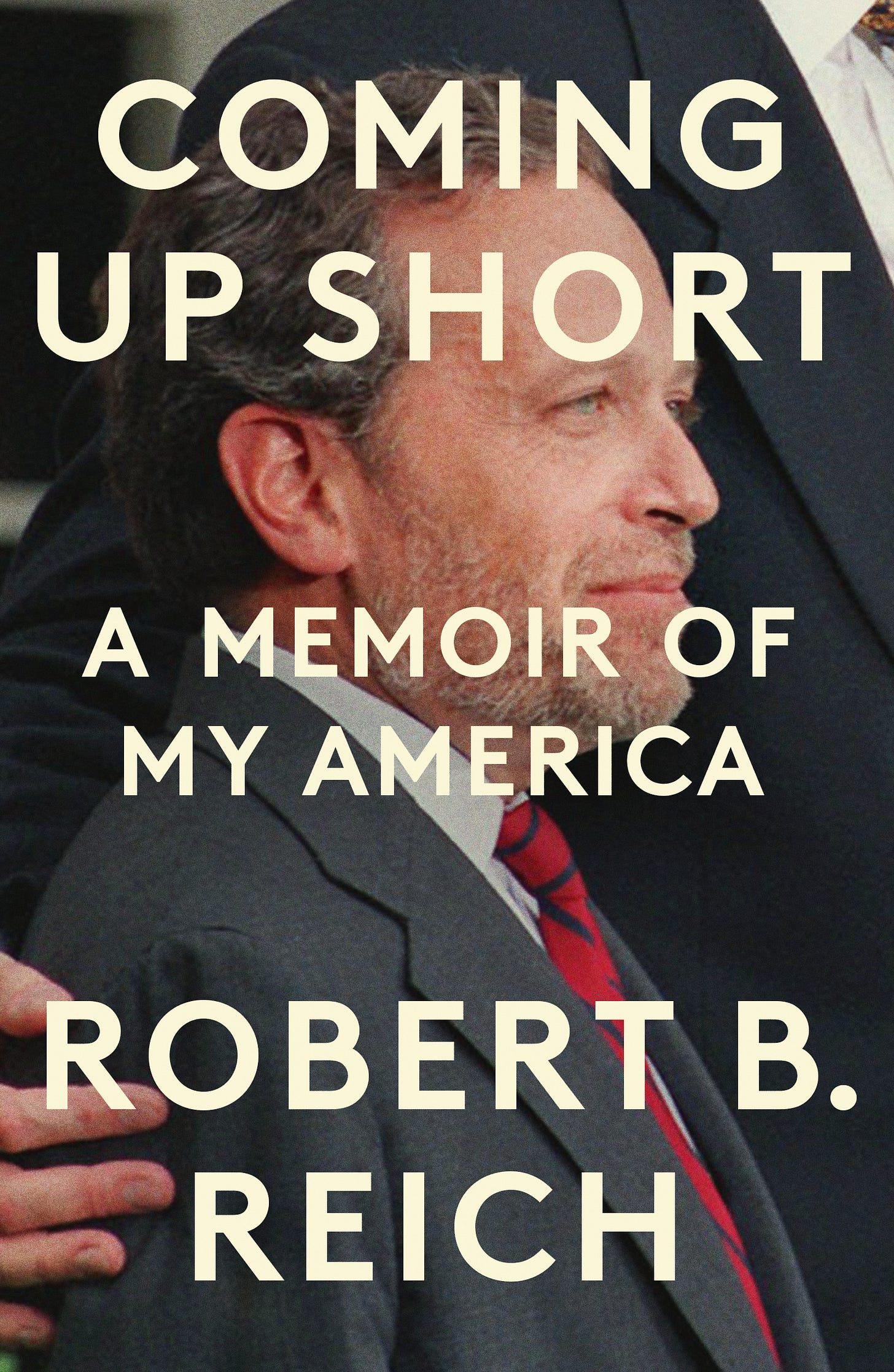Friends,
It’s fitting that today — on the 90th anniversary of Franklin D. Roosevelt’s signing Social Security into law — we understand Zohran Mamdani’s remarkable win in New York City’s Democratic mayoral primary in his simple progressive message: New York City is in an affordability crisis and the wealthiest New Yorkers must help respond.
Mamdani’s three main proposals to help working families cope with it are to make city buses free, freeze the rent for stabilized apartments, and expand free child care.
Under Mamdani’s plan, the financial burden of paying for these policies would largely fall on wealthy taxpayers and businesses (a stance that has put Mamdani at odds with many corporate Democrats — more on this in a moment).
For example, Mamdani estimates that the price tag for universal child care for infants and toddlers until they reach kindergarten age would be between $5 billion and $8 billion. To pay for this, he would push the state to increase taxes on residents making more than $1 million a year and hike taxes on large corporations.
It’s not just Mamdani in New York. Progressives are winning elections across America with a mix of bread-and-butter proposals to help average people better cope with the costs of living and a message of hope that such proposals can be enacted and will work.
In 2021, Michelle Wu of Boston became the city’s youngest mayor in a century by pushing a similar set of proposals. Wu promised to “free the T,” the nickname for Boston’s transit system. She also called for expanded access to pre-K seats for 3- and 4-year-olds and for new rent control regulations.
A recent poll of Boston’s electorate by the Suffolk University Political Research Center finds that 65 percent of voters support “a cap on rents or other forms of rent control.” A recent national survey from the Pew Research Center finds that about 6 in 10 adults support raising taxes on large businesses and households making more than $400,000. That support has also materialized in voter referendums, even in cities where progressive candidates have stalled.
Baltimore’s young Black mayor, Brandon Scott, has tackled violent crime as a public health crisis — addressing its root causes with a holistic approach. The result: Violent crime is now at its lowest level in that city in more than 50 years.
In Chicago, Brandon Johnson beat an incumbent and several more moderate and older mayoral candidates in 2023 by vowing to provide more services for poor residents and help pay for them by raising taxes on the rich.
In 2018, San Francisco passed a ballot measure putting a tax on companies making more than $50 million to fund more housing and homeless services.
Los Angeles passed a tax in 2022 on property sales above about $5 million to build more housing and expand homeless services. Last year, voters in Los Angeles County approved a measure raising the region’s sales tax to fund more affordable housing, among other priorities.
In New Orleans, voters chose to hike property taxes to vastly expand the number of child care slots for lower-income children.
The moneyed interests fear much of this. As inequalities of income and wealth have reached the highest levels in a century, those at and near the top worry that majorities of voters will tax them and erode their wealth. This is a big reason why spending by the rich on political campaigns has soared to record levels.
It’s also why corporate and Wall Street Democrats fear Mamdani, and why House minority leader Hakeem Jeffries has held back from endorsing him even though Brooklyn, which Jeffries represents, voted for Mr. Mamdani over former Governor Andrew Cuomo by a nearly 20-point margin.
Democrats should ignore the carping of corporate and Wall Street Democrats and embrace Maldani and other young progressives as the future of the party.
The most powerful force in American politics today is antiestablishment rage at a system that’s rigged against most people.
So far, Trump and Republicans have channeled that anger into ugly anti-immigrant, anti-transgender, anti-”deep state” rhetoric and policies.
But as the affordability crisis deepens, those bogeymen won’t contain the rage. Prices are rising due to Trump’s import tariff taxes. Social safety nets like Medicaid and food stamps are fraying as a result of Trump and his Republicans’ reverse Robin Hood policies. The Social Security Administration itself has been eroded by Trump’s DOGE. (See here.)
Trump’s polls are dropping like a stone. Approval of his presidency has dropped 6 percentage points since April, and his rating is now 20 points underwater —38 percent approving and 58 percent disapproving.
Which is why pragmatic progressives — armed with a mixture of bread-and-butter proposals to improve the lives of ordinary Americans, and an upbeat message of hope that such proposals can get enacted — will win even more elections.
***
In bookstores. Or order here from Bookshop.org, which supports local bookstores.
This post has been syndicated from Robert Reich, where it was published under this address.


